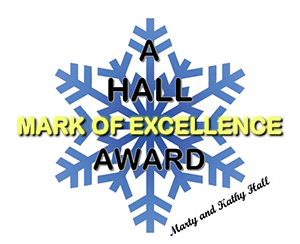 This coverage is made possible through the generous support of Marty and Kathy Hall and A Hall Mark of Excellence Award. To learn more about A Hall Mark of Excellence Award, or to learn how you can support FasterSkier’s coverage, please contact info@fasterskier.com.
This coverage is made possible through the generous support of Marty and Kathy Hall and A Hall Mark of Excellence Award. To learn more about A Hall Mark of Excellence Award, or to learn how you can support FasterSkier’s coverage, please contact info@fasterskier.com.
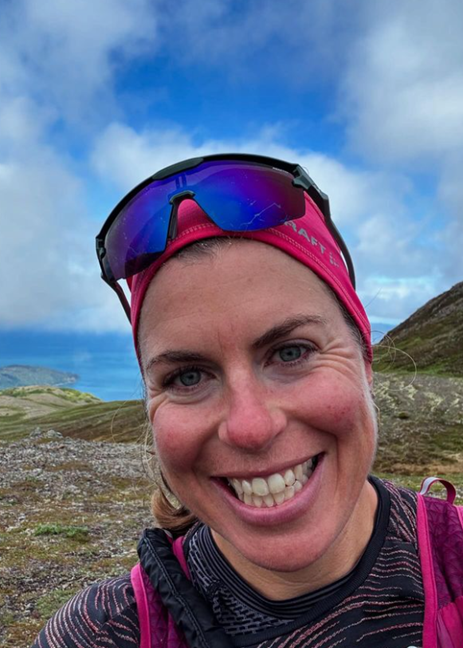
Rosie Brennan has been a mainstay of the U.S. ski team for years and is routinely one of its top performers. The APU (Alaska Pacific University) skier has earned the status and acclaim of being a hard working blue collar skier, who admittedly likes tough grinding skiing the best. Brennan shies away from social media, so speaking with her usually reveals some new information—as it did in this conversation. Always straightforward and candid, Brennan was gracious enough to speak with FasterSkier about what she’s been doing since the season ended and filled in some previously undisclosed details about dealing with some difficult performances in the second half of last winter’s race season. Brennan also shared her thoughts about the upcoming World Cup season and dropped a bit of a surprise about when she thinks her final World Cup races will be and her thoughts about continuing her career through to the 2026 Olympics.
This interview has been edited for clarity and brevity.
FasterSkier: Where are you now?
Rosie Brennan: I’m in Park City training for a couple of weeks.
FasterSkier: Is that part of a team camp or are you on your own?
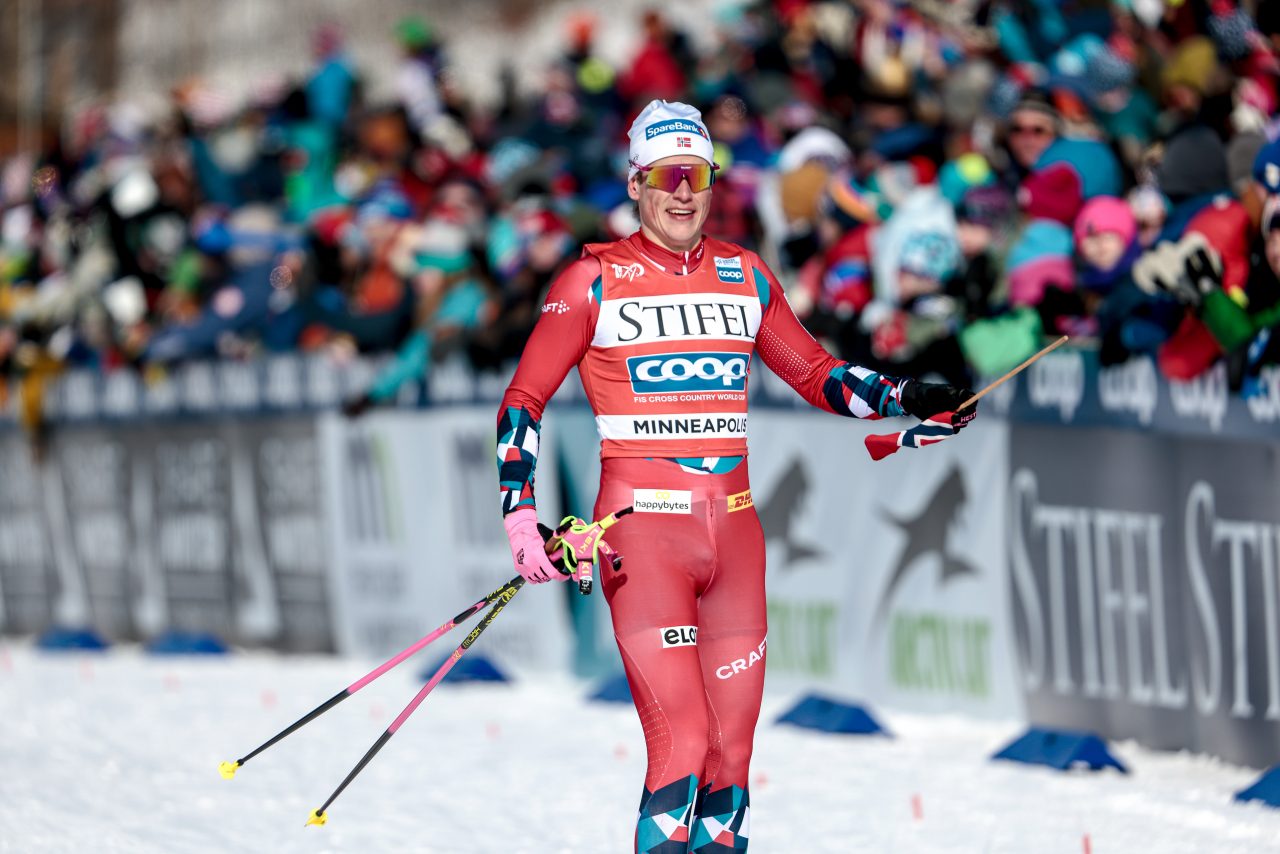
Rosie Brennan: No, I’m on my own. This is where I grew up. I stay with my mom and just do my own training camp. There’s not really anyone training here. There’s a junior team, obviously, but they’re in school now. There’s aren’t really any elite athletes training here, though Johannes (Klaebo) is in Soho (Soldier Hollow; about 45 minutes from Park City).
FasterSkier: Let me go back to the end of the last ski season after the World Cup season ended. What did you do after?
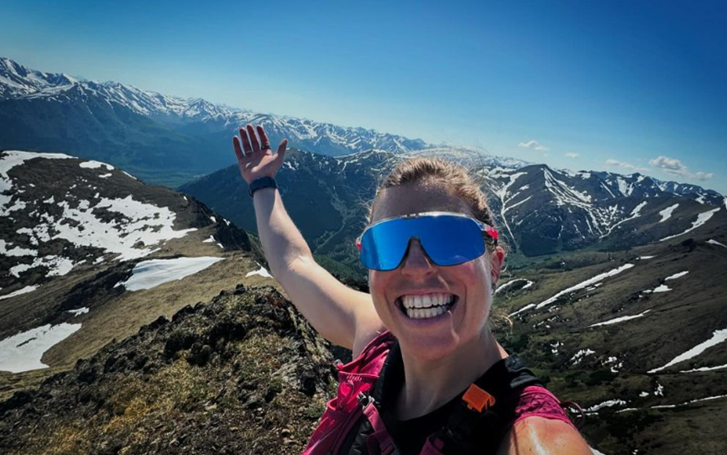
Rosie Brennan: I stayed in Norway for a bit and did a Backcountry ski trip with my mom. And, then went back to Anchorage and did a whole lot more Backcountry skiing. So. It was the spring filled of mountain skiing.
FasterSkier: Is that a getaway from the rigors of competition and just getting out there and enjoying skiing for what it is?
Rosie Brennan: Exactly. It’s just an easy way to be in the mountains. I grew up here in Park City, so in reality I’ve been Alpine skiing way longer than I’ve been Nordic skiing. I enjoy it a lot and I love when you can just be in the mountains all day with your friends. We had an insane snow year in Alaska this year. So, it was fun to be able to enjoy some of that in the spring. The days are long then, and it tends to be sunny, so it’s the best time of year there, honestly. It’s super fun to be able to come home and still have the good part of winter to enjoy.
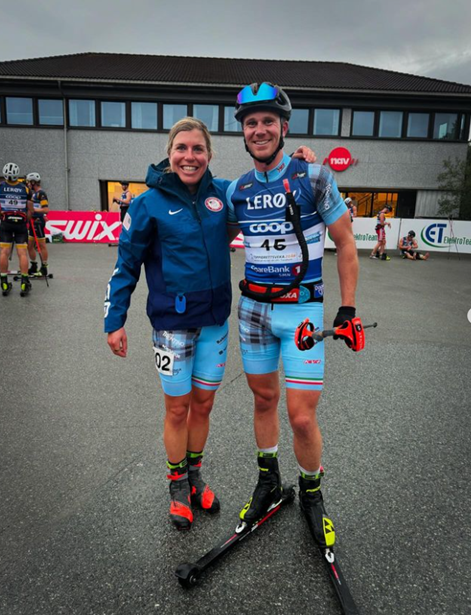
FasterSkier: I noticed that you had signed up for the Janteloppet (a Norwegian ski festival held in April and hosted by Petter Northug) 100-K which took place in April, but you didn’t end up doing it?
Rosie Brennan: I was planning to do the last two weekends of ski classics, but I had some trouble with a virus for the second half of the season. Sometimes there’s just a good time to stop. You can dig yourself too deep of a hole. So, with my coach and the medical team, we decided that enough was enough, and I needed to make sure that I didn’t have any lasting impacts from this virus.
FasterSkier: That’s really too bad because the winter before you had such a great performance in post World Cup ski classics (fifth in the Summit 2 Senja, and second in the Reistadlopet).
Rosie Brennan: Yeah, I was looking forward to it. It was definitely a bummer, so I’ll take another stab at it this year.
FasterSkier: You were looking forward to the 100-k race?
Rosie Brennan: Well, OK, no (laughing), I was a bit intimidated by that one, but it was just one of those challenges. And I was thinking this is probably the only time I’m ever going to do this in my life. So maybe I should challenge myself. But alas, it was not meant to be so.
FasterSkier: Then you think you’re going to go for it again this coming winter?
Rosie Brennan: I’m definitely going to do a ski classic. The Reistadlopet and the Summit 2 Senja, I plan to do after the World Cup.
FasterSkier: You were back in Norway again just a couple of weeks ago, right?
Rosie Brennan: Yes. I went over there for almost three weeks to train in Trondheim and then do some of the roller ski races.
FasterSkier: You raced the Toppidrettsveka roller ski race. Why did you to want to do that event?
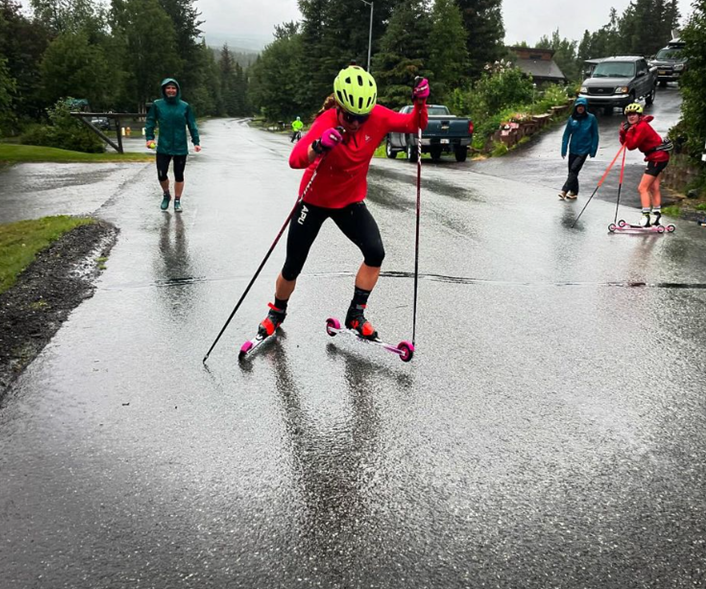
Rosie Brennan: Mostly I wanted to go train in Trondheim because— I did that last year, and I actually really enjoyed the training there—it was just a nice way to mix it up and train with some other people. But the rollerski track there is almost identical to the race course. So, then I thought oh well, that makes sense to go back this summer when world champs are there and I can do some key sessions on the rollerski track and just get some more feel for what some of the climbs feel like and what the demands of that course are going to be like. So that was kind of the main goal. And then, the rollerski race was just— put a bib on, challenge yourself a bit, see where you’re at that sort of thing.
FasterSkier: So, the paved roller ski trails are right on the World Cup course?
Rosie Brennan: Yes, it’s almost the same course. Not everything but it’s almost the same as the 5-K.
FasterSkier: Were there a lot of people that were doing the same thing that you were— taking reconnaissance training for World Championship purposes?
Rosie Brennan: Yes, I think so. I think there’s been people in and out of there all summer. Obviously for Europeans it’s pretty easy to get there. I maybe have come from the furthest away, but yes, I think there’s quite a few people training there.
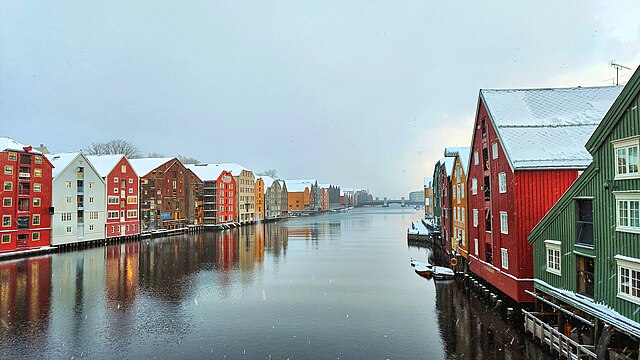
FasterSkier: So how did the roller ski racing go for you?
Rosie Brennan: It was OK. The long one was OK. The ones on the track, I wasn’t super psyched with. To be honest, that was my first time doing a roller ski race on a track like that, in a mass start. The only ones I had done previously were the long point to point ones or the little ones we do at Soldier Hollow, which are not quite the same. So, it was kind of a challenge in that sense. It was at the end of my camp there, so I was definitely a bit on the tired side and didn’t have the performances that I had hoped, but nonetheless it was a good challenge.
FasterSkier: How long was the long roller ski race?
Rosie Brennan: 56 K Classic. Ski classics has a roller ski circuit in the summer, and all they do are Classic, and they’re point to point. They’re pretty flat, it’s mostly double polling. I did two of them last year, and I actually think those are great because it’s not something you can really mimic in training, you’re not going to go do a 56-K time trial by yourself unsupported. And so, it’s pretty fun to be able to go that hard for that long with support with your friends in a really cool place. This one is on islands in fjords, so you’re going across all these bridges, it’s beautiful. I really like those just because I think the training value is so high, so, I was stoked to do that one. Most of the other girls— the World Cup girls anyway— only did the ones on the track. I think that probably took a toll on my performance for the weekend, but that’s good, that’s what summer training’s for, challenging yourself and making yourself get a little tired every now and then.
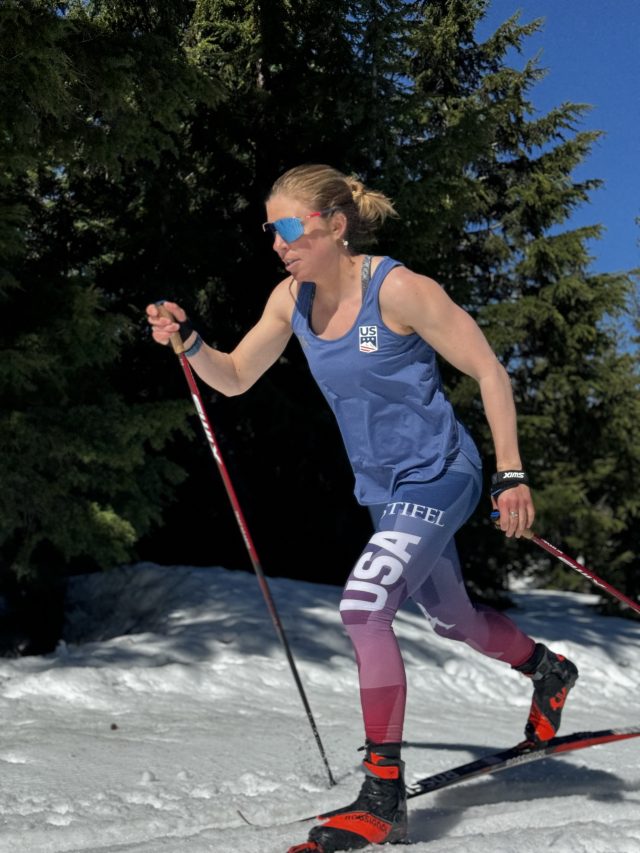
FasterSkier: What were the distances of the ones on the track?
Rosie Brennan: 20-k and 12-k.
FasterSkier: You were kind of close to where the Blink Festival happens. Did you consider doing that?
Rosie Brennan: I thought about it, but those were the first days I got there and the whole goal of being there was to ski on the track and Blink is in southern Norway. So, it’s a plane ride— at least one plane ride— and driving a way. Logistically, it just didn’t really make sense. I was more focused on some of my own workouts I had planned on the track.
FasterSkier: Getting back to North America, how did Bend Camp go for you?
Rosie Brennan: It was a bit early. I don’t really love doing training camp the very beginning of May, especially because we still have such great skiing in Anchorage then. So that was a bit tough. But I really enjoy that camp. It’s very low key. It’s just doing lots of distance and Bend is such a nice place to hang out. It’s pretty sweet to ski in the morning and then bike, run, do all the summer things in the afternoon. So, I wanted to go to that one, even if it was a bit early for my taste.
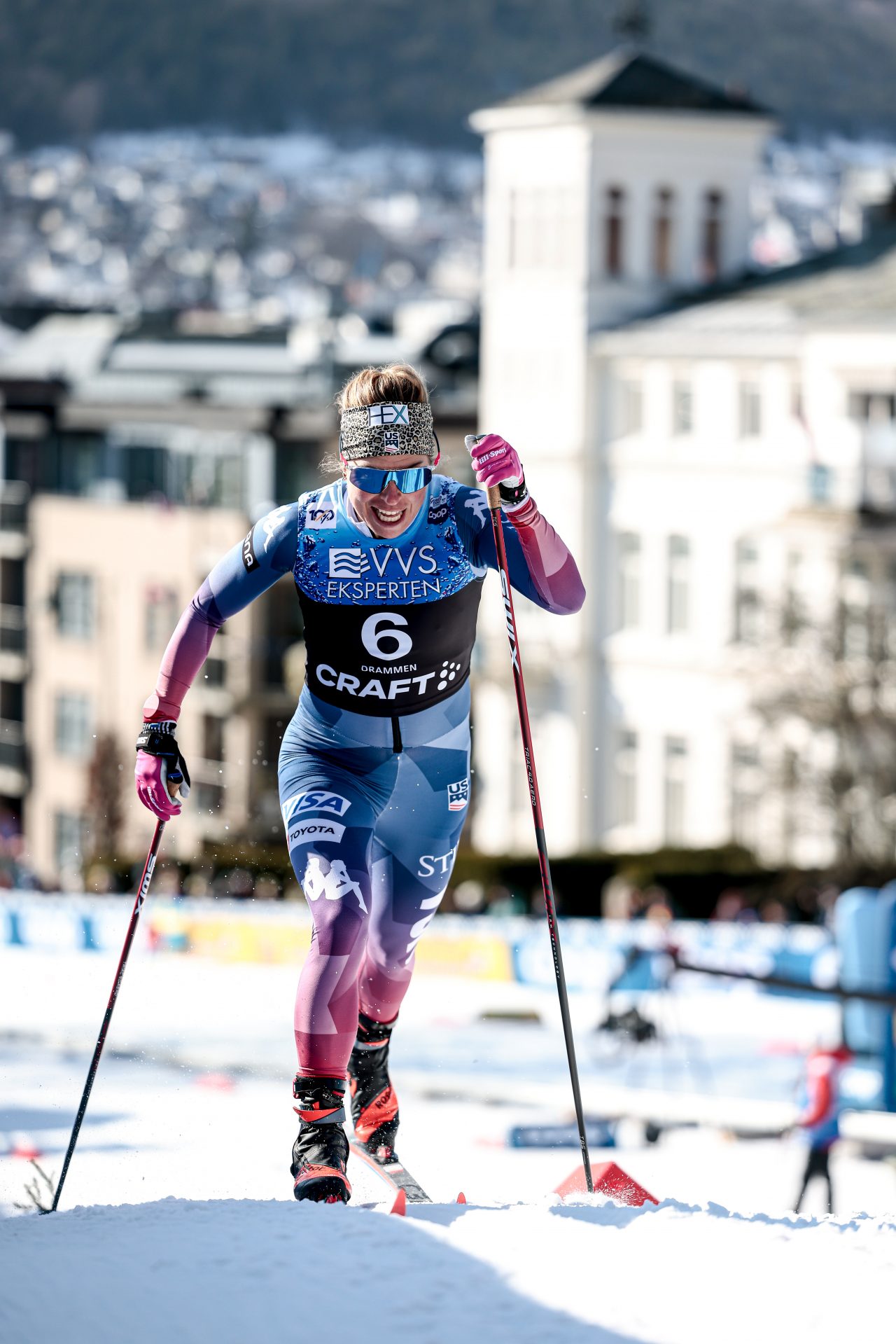
FasterSkier: With it being early in the training cycle, what do you want to get out of that camp?
Rosie Brennan: The goal is just to get back into things. It’s a lot of distance training and maybe a little bit of technique work because you’re on snow, but at that point, I hadn’t not been on snow, so that part was not that big of a transition. It’s mostly just getting back into a training rhythm and getting your volumes back up. That is the nice part. It makes the transition to dry land easier because the morning is spent skiing, so you’re not trying to figure out how to train 25 hours in a week only running and roller skiing when you haven’t run and roller skied in seven months. So that’s part of the goal, to get your dry land muscles transitioned, so when you go back you can do full dry land.
FasterSkier: At some point, do you take some time to reflect on the prior race season and do an analysis of what went well, and what you weren’t happy with?
Rosie Brennan: Definitely. That’s a big part of the spring. I don’t have any structured training in the spring. A lot of it was spent just in the mountains back country skiing. Of course I did some Nordic skiing, but it’s not like a plan that’s dictated by my coach, it doesn’t feel like training. It feels like something I want to do so I do get that break. And then whenever I feel like I’ve had my own time to think about things and kind of come down, then I meet with Eric (Flora) and over the course of a couple meetings we go through exactly what you said, what went well, what didn’t go well, and what are my goals moving forward and what’s the plan, how are we going to get there? So, we definitely spend a good chunk of time going through all that.
FasterSkier: Is there anything in particular about last winter that stood out to you, good or bad?
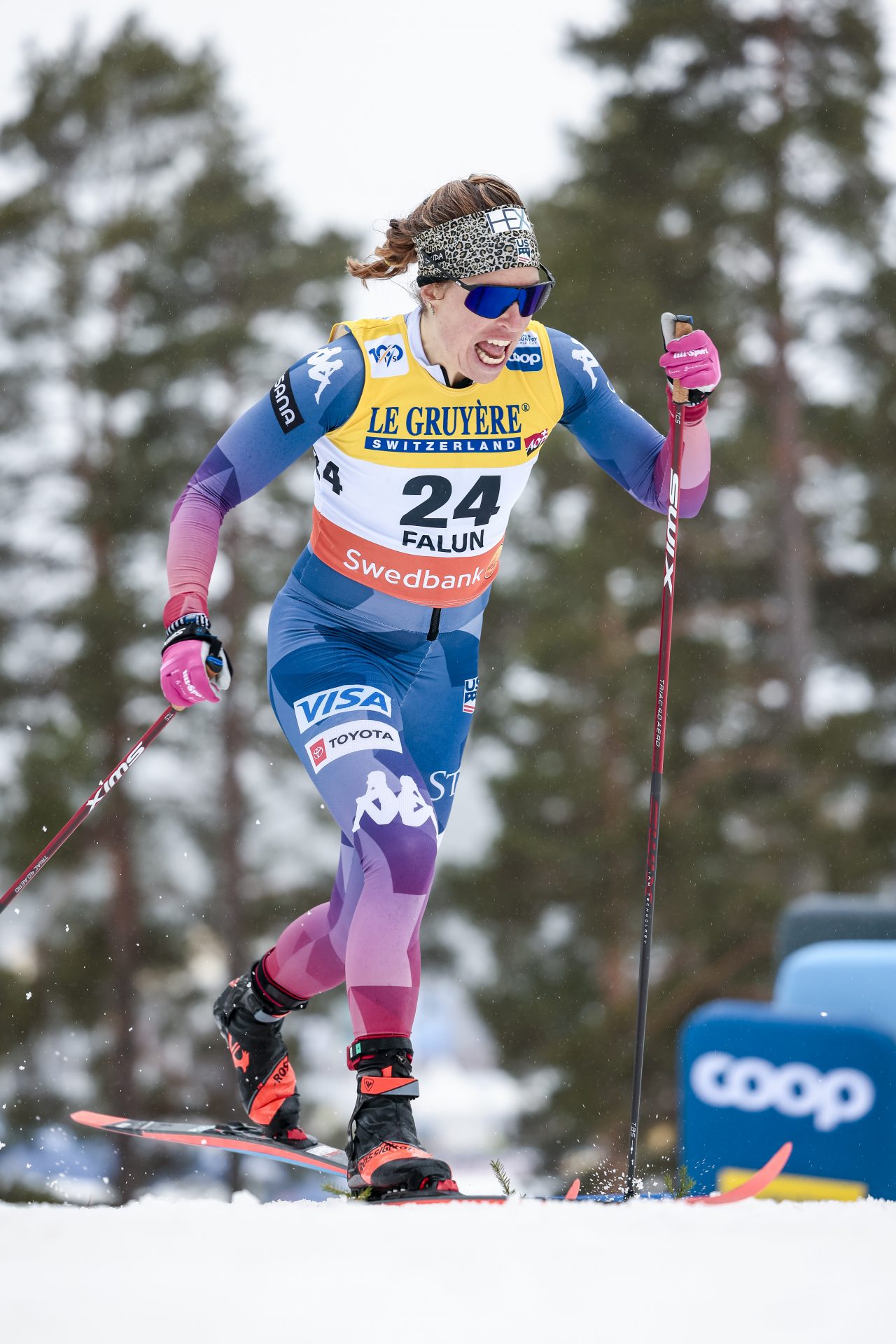
Rosie Brennan: I was thrilled with the progress I made in my Classic skiing. That has been a big push for a number of years and it finally all came together. So that was super. And then I also think one of the biggest accomplishments in my mind was— I pride myself on being an all-around skier and never wanting to pigeonhole myself into just one event— and so one of my goals has been to get a podium in in all four disciplines— Skate, Classic, Sprint, and Distance, and I was able to complete that this year. So that was huge too— and I felt I felt like, OK, I guess that I’m an all arounder! So those were kind of the good things. The bad things were that whatever virus I was dealing with for literally half the season was really challenging and tough because those things are just really hard to get answers to. I’m not even sure I really have answers yet other than hopefully it’s gone. So that made my North American World Cups just really, really challenging. And that was obviously physically challenging, but also extremely mentally challenging because I had everyone I’d ever met at those events. So, it’s always a bummer when you have your worst races when everyone you care about is watching you. That was the low point for sure. I don’t know, it was a low point and a high point, it was also amazing— just the experience. But my personal performance was challenging.
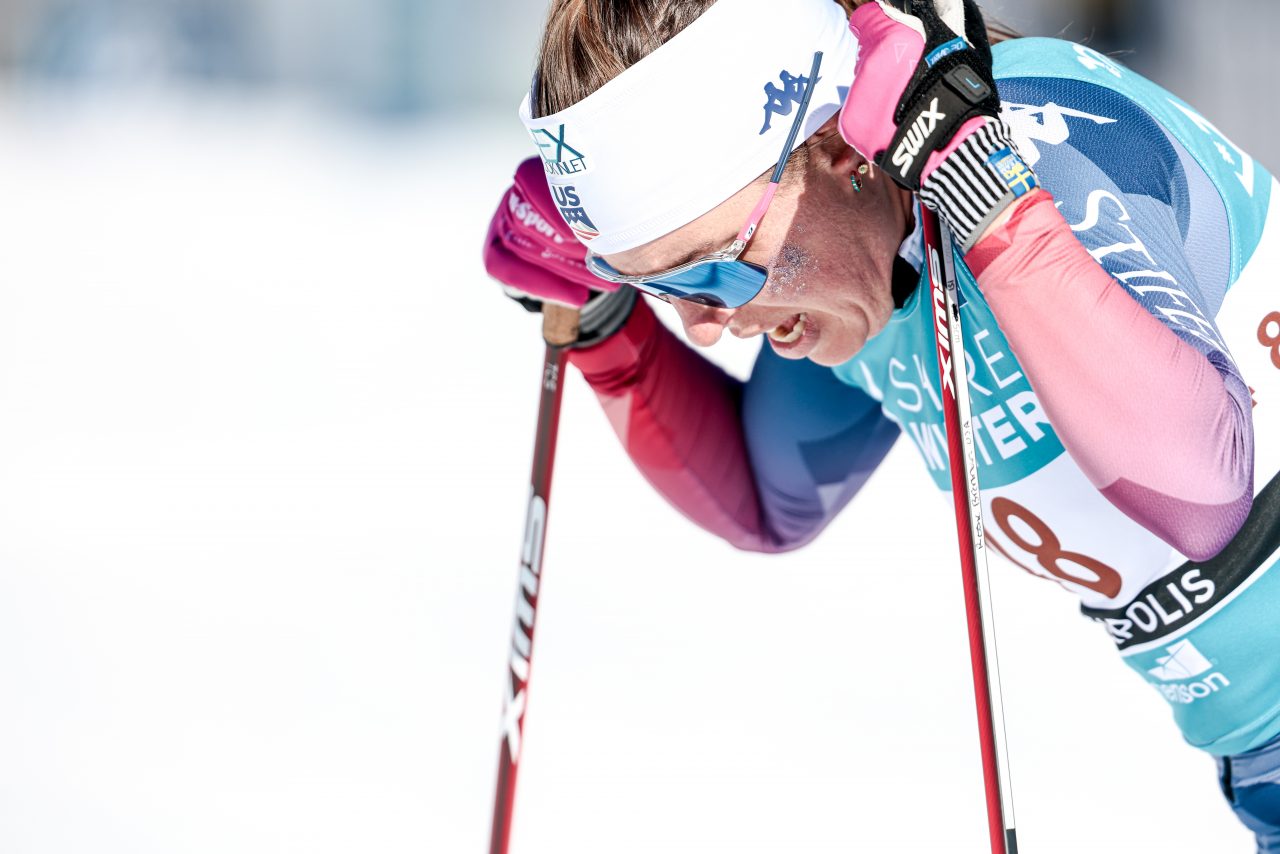
FasterSkier: I spoke with you at some point towards mid-season last year, around Minneapolis, and I don’t recall you mentioning illness. Is that something you were kind of keeping quiet?
Rosie Brennan: Yes, very much so. I didn’t really have answers then and I don’t really have answers now. There was definitely some viral thing that I had that just was providing challenges and those things are just tricky.
FasterSkier: Is that something you just don’t like to talk about during the middle of the season when you’re in the midst of it all?
Rosie Brennan: Well, I really had no idea what was happening until after Minneapolis. And at that point, I just really didn’t even know what I would say to somebody. I came back to Park City after Minneapolis and did a lot more work with the medical team and tried to get a better understanding of what was going on, so I had a little more knowledge after that. But without any answers you don’t want to be like, “oh I have a viral thing” when you actually have no clue what’s going on. And in the moment, it is just really hard. I didn’t know why my performances were so bad and to this day maybe it could have been the virus, but who knows, maybe that’s just the excuse I’m telling myself now; I don’t know. I was just trying to do the best I could because everyone was there watching. And I wanted to just soak up the atmosphere.
FasterSkier: I do recall after one of the races in Minneapolis asking your thoughts about your performance you just shrugged and gave me this kind of, I don’t know, look. It all kind of makes sense now.
Rosie Brennan: I think that was exactly how it was, “I don’t know.”
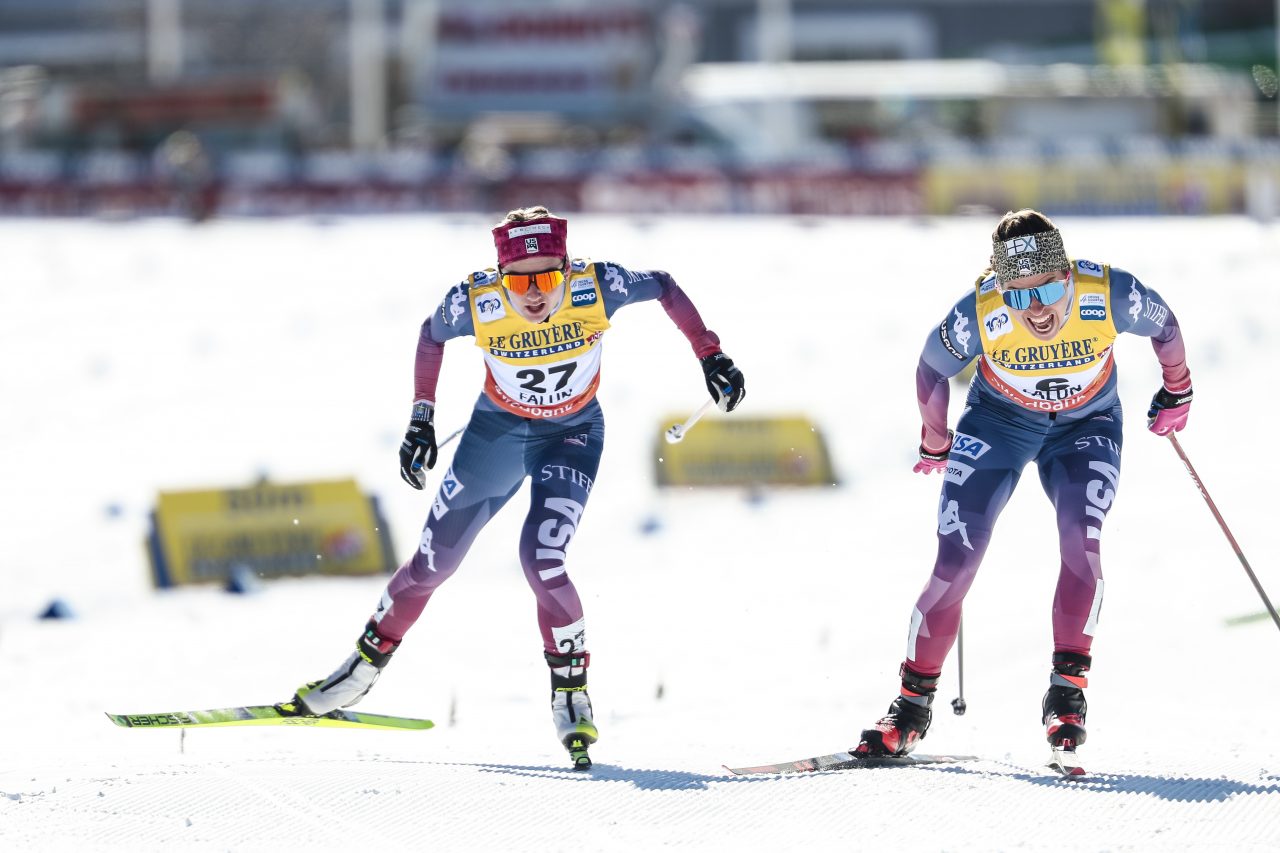
FasterSkier: Minneapolis obviously was a great event, regardless of how any person or team did. It was great to be there and just enjoy it. But there had to have been an awful lot of pressure on everyone on the American team to perform well, and obviously there were some really impressive performances, but did that pressure come with some downsides to it?
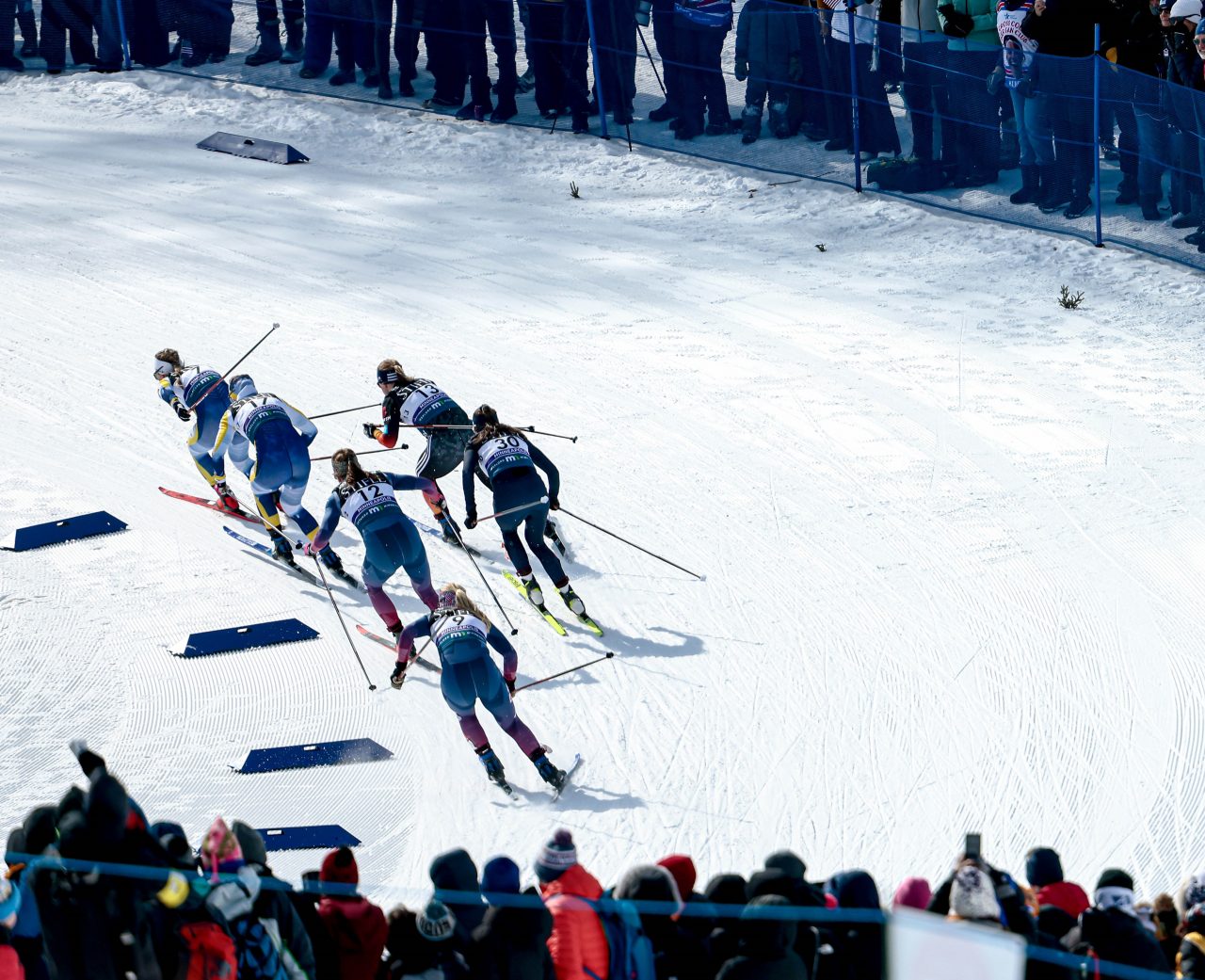
Rosie Brennan: I think honestly, a lot of us felt more pressure just wanting the event to be perfect. Because it was our one chance to showcase American skiing to the world, but also to all of our families and friends and people that we really care about. And so, I think for a lot of it, it was just this anticipation and pressure of, can we pull off the event that we think we can? It obviously makes the event even more outstanding if we get on the podium. So, I think that was kind of a secondary pressure, and that’s super individual; it depends a bit on who you are. For me I just wanted everyone that came to have an amazing experience, which thankfully they all did. I can’t take credit for any of that, it was just an amazing event put on by those organizers. It was absolutely outstanding. When I showed up the first race day and was warming up and there were already, tens of thousands of people there cheering my name … I was immediately brought to tears because I never thought I would experience something like that in my lifetime. It was so overwhelming and so emotional, and at that point I actually felt like all the pressure lifted. I was just excited and kind of overwhelmed by it. Because it was just like, “wow, this many people have showed up just to cheer for us. I don’t even think these people care if we win or lose.” They’re just so excited that this is a thing and that we’re here, and we’re trying our best to perform of course. But I think for other people there was a lot more pressure for sure.
FasterSkier: When you did that postseason review are there any changes that got made in terms of training or technique work or anything that needed fine tuning?
Rosie Brennan: There’s always something to get better at. There’s always something to be working towards but it’s definitely for me, at this point, fine tuning. My training has not changed in any drastic way for a good while. At this point in my career, I feel like I know myself relatively well, and I have a good idea of training, but I also trust Eric so much and that’s a big part of those meetings, is me telling him the things that I think I could improve on and things that I think I’ll need for the race courses in the future or for the next season. And then I kind of leave the rest of it to him to actually do the day-to-day. I trust him with that and just do the plan. And then obviously I chose to go to Norway and now I’m in Utah, which is not an APU team thing, so we then make some individual plans for me and what I want to do. But I definitely have a lot of faith in him.
FasterSkier: Is there anything specifically that between you and him, you looked at and said, now here’s something we can improve and really get some mileage out of?
Rosie Brennan: I think last year I had a big emphasis the double pole which was good. I think that was helpful, but I think it came at the expense of maybe some leg strength. So I switched back a little bit this year and put a bit more emphasis on leg strength and utilizing that. APU also got a roller ski treadmill this year, so we’ve been experimenting with that with some various technique projects, which has been really cool. It was new, so it was obviously very much experimenting, so we’ll see what comes of it. But so far, I feel like it’s been a really positive way to work on some specific technique things. So far, I have only skated on it. We’ll see how that goes.
Please return to FasterSkier for Part II of our interview with Rosie Brennan when she divulges her future career plans, her thoughts on the World Championships, the U.S. women’s relay team, and the absence of the Holmenkollen 50.



